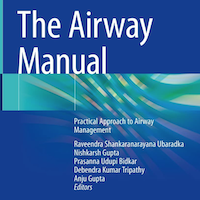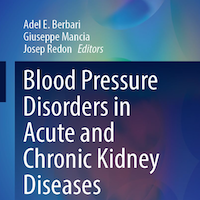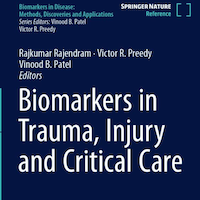Tag: KDIGO
The Kidney Crisis: Acute Injury as a Predictor of ICU Survival
This extensive population-level study from Ontario, Canada, analyzed over 480,000 adult ICU admissions to clarify the relationship between Acute Kidney Injury (AKI) and patient outcomes. By utilizing outpatient baseline data... read more
Predicting Sepsis-associated Encephalopathy in Septic ICU Patients with AKI
Researchers developed a simple, interpretable nomogram to predict sepsis-associated encephalopathy (SAE) on day 1 in septic ICU patients who also have acute kidney injury (AKI), using data from the large MIMIC-IV database... read more
Salinity Signal: Low Sodium-Chloride Difference Predicts Higher Mortality in Critically Ill Adults
This retrospective cohort study investigated the relationship between the easily calculated Sodium–Chloride Difference (SCD) at the time of ICU admission and the patient's subsequent 30-day mortality risk in 1,726 critically... read more
Beyond Creatinine: A Systematic Review of Biomarker Performance (NGAL, KIM-1, TIMP-2·IGFBP7) for Acute Kidney Injury in the ICU
This systematic review analyzed 35 studies to assess the performance of three key Acute Kidney Injury (AKI) biomarkers—NGAL, KIM-1, and TIMP-2 ⋅ IGFBP7—in the Intensive Care Unit (ICU) setting. NGAL (Neutrophil Gelatinase-Associated... read more
Rethinking Blood Pressure Goals: Why High vs. Low MAP Targets Affect Patients with Septic Shock
Based on a study of 776 patients, there's no evidence that different groups of people with septic shock respond differently to a high versus low mean arterial pressure (MAP) target. In other words, there wasn't a "one-size-fits-all"... read more
AKI and Mortality Predictors of Systemic Autoimmune Diseases and COVID-19
The present study highlights renal parameters and outcomes associated with various systemic autoimmune diseases and COVID-19. Patients who presented with low oxygen saturation (... read more
A Global Perspective on AKI After Major Surgery
Acute kidney injury (AKI) is an abrupt decline in kidney function occurring within hours or days. In patients having surgery, postoperative AKI is a major complication associated with adverse outcomes including mortality.... read more
Optimizing the Timing of RRT in AKI
The optimal timing of renal replacement therapy (RRT) in critically ill patients with acute kidney injury (AKI) has been much debated. Over the past five years several studies have provided new guidance for evidence-based... read more
Use of Biomarkers to Identify AKI to Help Detect Sepsis in Patients with Infection
Use of the urinary (tissue inhibitor of metalloproteinases-2) × (insulin-like growth factor binding protein 7) test could identify acute kidney injury in patients with infection, possibly helping to detect sepsis, nearly... read more
AKI Epidemiology, Risk factors, and Outcomes in Critically Ill Patients 16-25 Years of Age Treated in an Adult ICU
Using the KDIGO criteria for both serum creatinine and urine output to define acute kidney injury (AKI), 39.8% of patients between the ages of 16–25 met AKI criteria during admission to an adult tertiary care center, indicating... read more
Use of Lab Tests in Detecting Kidney Disease
This systematic review summarizes evidence supporting the use of laboratory tests for glomerular filtration rate and albuminuria to detect and stage kidney disease in adults. Detection and staging of acute and chronic kidney... read more









